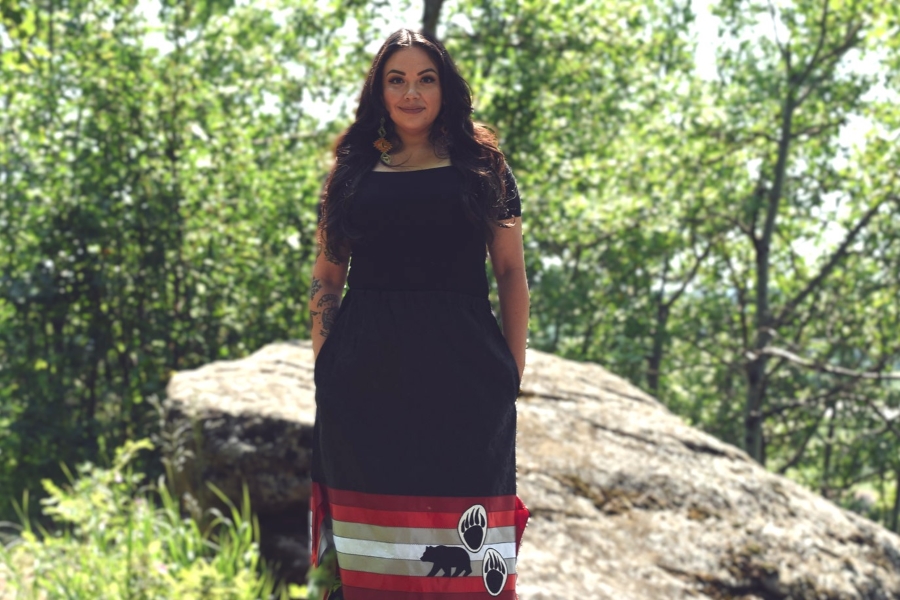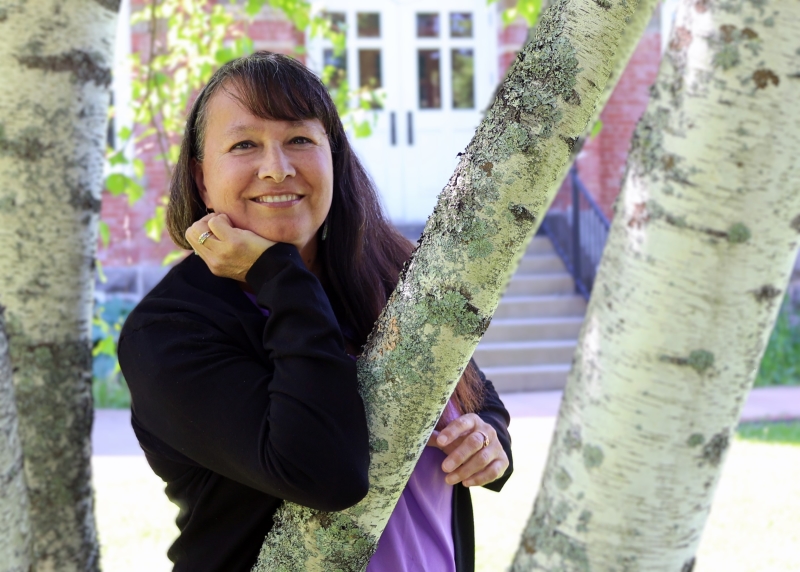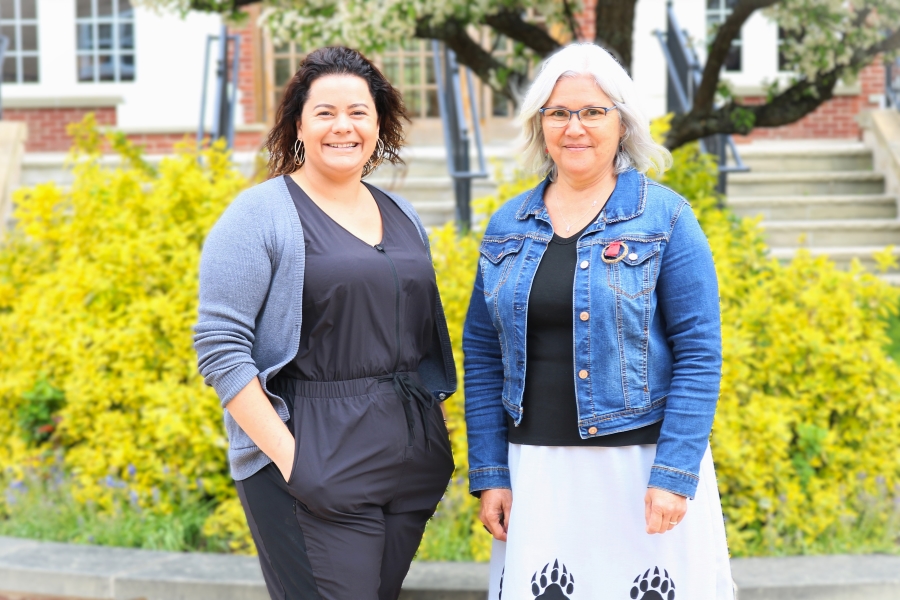
For many generations, First Nations, Métis, and Inuit people have celebrated their culture and heritage on the summer solstice – the longest day of the year. In 1996, the Government of Canada officially recognized June 21 as National Indigenous Peoples Day across Canada. We join in celebrating the diverse cultures of Indigenous people across Turtle Island with the intentions of solidarity, community, kinship, and reconciliation.
Today, we’d like to highlight some of the invaluable Mentors for the Indigenous Women in Community Leadership (IWCL) program. This program is part of the Circle of Abundance initiative aimed to amplify Indigenous women’s leadership through a two-eyed seeing (or walking in two worlds) approach. This program is grounded in relational practices and mentorship opportunities that will build upon their trusted leadership capacities for community-led, community-driven work. IWCL’s approaches to community building and social change are rooted in individual and collective responsibility, reciprocity to the community, and relationship to one another and the land.
The IWCL program fosters individual growth and contributes to building resilient and self-determining communities.
Participants and mentors were on campus at Coady Institute and StFX University during June for the first residency phase of the program. We spoke to three mentors about their experience so far.
“The storytelling aspect in The Circle of Abundance is super important. Everything that we are is story. Even if we’re not actively telling stories (to others), we are telling ourselves stories and that guides how we interact with the world. So, I think storytelling is such an important feature of being in the world. I think within this program, one of the biggest pieces is the connection. I think when you are able to connect with people who have been through similar struggles and grow alongside them and parallel to them and with them, that’s powerful – and that comes through the ability to connect through story.”
Helen Knott
Prophet River First Nations


“As a mentor, I listen. I support. I might say, ‘what about this?’ or ‘what about that?’ and I share stories about my own journey because I’ve been around the block a few times. It gives the other women something to think about. It nurtures their thoughts and perhaps guides them in areas they have not thought about. It causes them to think about things they might feel shy, insecure, or intimidated to do. Then I say, ‘Go for it. Try it. That’s how you learn. It’s okay to make a mistake. It’s okay when you’re trying, to not have it perfect. That’s learning’.
It causes them to be brave.”
Dr. Kathy Absolon (Minogiizhigokwe – Shining Day Woman)
Flying Post First Nation Treaty 9
“I think I’m the youngest mentor. I graduated from the program in 2022. During the program, I worked with my mentor and the day before we presented our community projects to the class she said, ‘you need to go home, go into ceremony, and really figure out if this is the direction you want to take’. Lo and behold, that’s not the project that I ended up coming back with in the end. My mentor and I worked really closely to we shift the project and we recreated and birthed this beautiful program that still exists today. I thought if I ever had the opportunity to come back and share my experience – the knowledge that I got from the program itself and how it’s unfolded into something much larger in my community – I’m going to take it.”
Mandi Olson
Six Nations/Southern Treaty 3

Mandi Olsen (left) and her 2022 IWCL mentor Gayadowehs LuAnn Hill-MacDonald.
